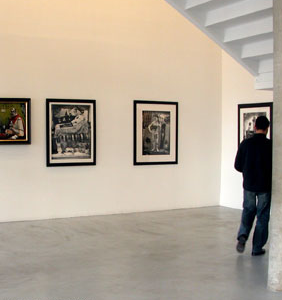CFP: “Histories of museology” | Art History Supplement, Issue 3.3, May 2013
Submission deadline: April 15, 2013
 Latest technological developments and advances enable us to reconstruct up to some point previous exhibitions and make them available to a global audience for pleasure or research. Such endeavours would include the recent project of Art Institute of Chicago “Historic Exhibitions” celebrating the 100th anniversary of the International Exhibition of Modern Art, or else the Armory Show of 1913, the first large exhibition of modern art in America, organised by the Association of American Painters and Sculptors (http://extras.artic.edu/armoryshow). The University of Virginia, for instance, had also previously uploaded a website dedicated to the Armory Show (Welcome to the 1913 Armory Show, http://xroads.virginia.edu/~MUSEUM/Armory/armoryshow.html). Google Art Project (http://www.googleartproject.com/) would also belong to this category in few years, unless updated.
Latest technological developments and advances enable us to reconstruct up to some point previous exhibitions and make them available to a global audience for pleasure or research. Such endeavours would include the recent project of Art Institute of Chicago “Historic Exhibitions” celebrating the 100th anniversary of the International Exhibition of Modern Art, or else the Armory Show of 1913, the first large exhibition of modern art in America, organised by the Association of American Painters and Sculptors (http://extras.artic.edu/armoryshow). The University of Virginia, for instance, had also previously uploaded a website dedicated to the Armory Show (Welcome to the 1913 Armory Show, http://xroads.virginia.edu/~MUSEUM/Armory/armoryshow.html). Google Art Project (http://www.googleartproject.com/) would also belong to this category in few years, unless updated.
In this forthcoming issue of Art History Supplement, vol. 3, no. 3, “Histories of museology”, based on concrete examples, papers are sought examining the theoretical dimensions and research potentialities of such projects from the perspective of art history and museology; apart from art criticism or histories of reception initiatives. Further, what does it mean for a museum institution an online exhibition or an online audience, in terms of curating, communication policy or economic strategy? Is online, hence digital, curating different from wed design? What could be the impact to museum studies, in general, the existence of two simultaneous versions of the same exhibition (the one in the natural exhibition space of a “museum” and the other “in vitro”, in the digital world)? By “museum studies” I refer to the several disciplines found under the umbrella term of museology, ex., history of museums, curating, museum architectural design, museum communication (aka museum education), museum or heritage management, etc.
Please refer to Author’s guidelines for more information at our website. Visit our official blog at Hypotheses.org. Should you have any other question, do not hesitate to contact us.
– – – –
Art Histories Society

Leave a Reply
You must be logged in to post a comment.